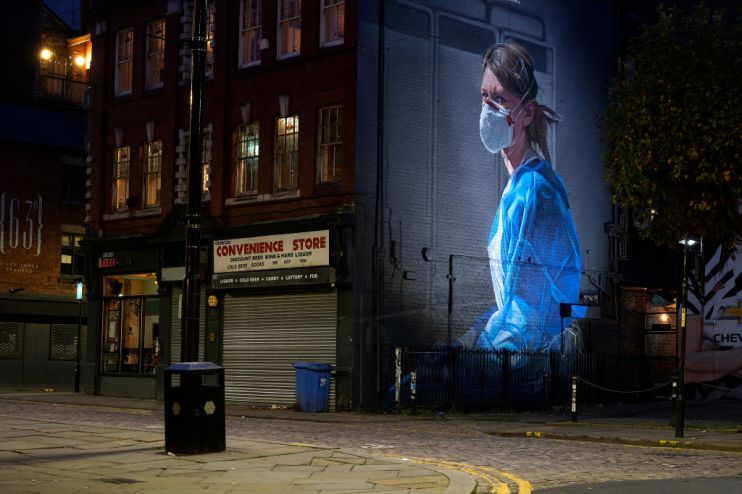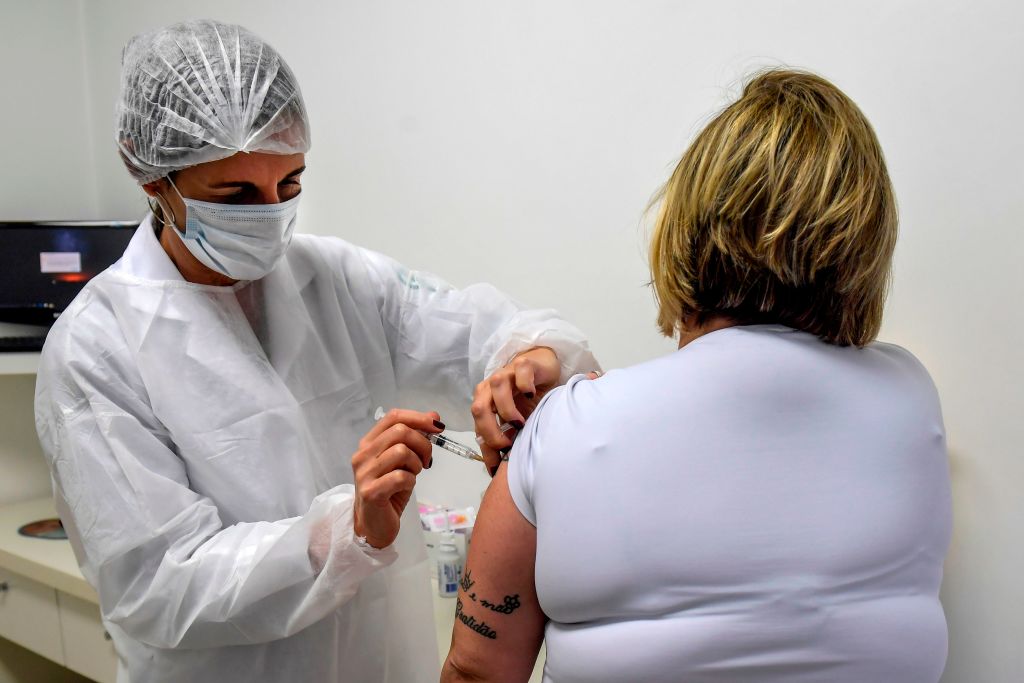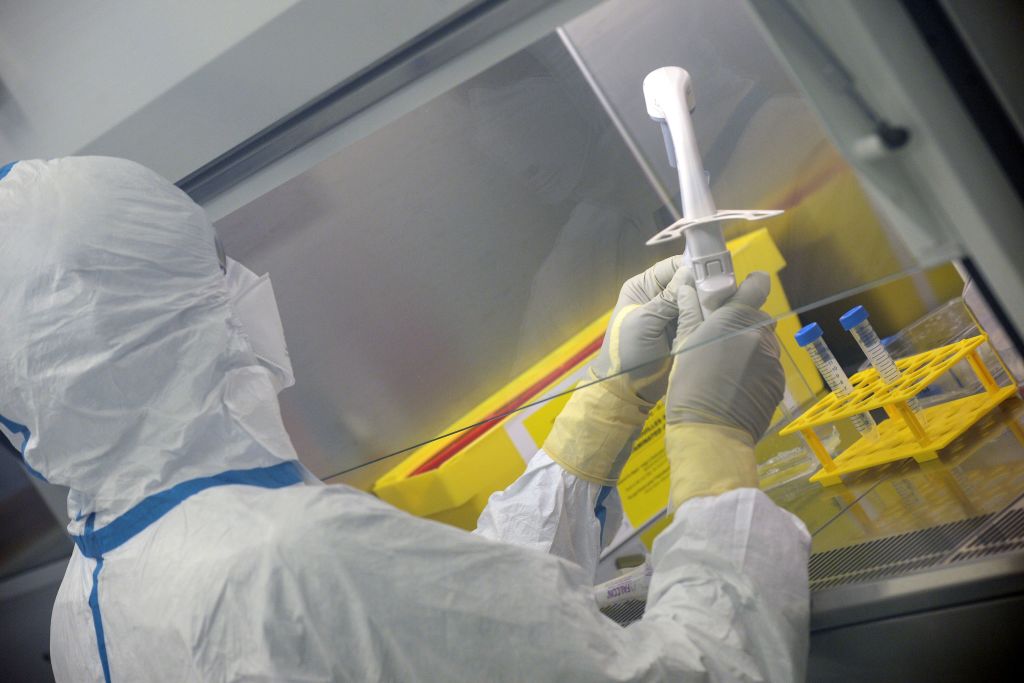How close are we to having an approved coronavirus vaccine?

A vaccine is widely considered to be central to how the world can ease the coronavirus pandemic and return to some semblance of normality.
Since the disease first swept across the world at the beginning of the year, universities and pharmaceutical firms globally have sprung into action to try to develop a treatment that will give people immunity from the novel Covid-19 virus.
According to the World Health Organization, more than 160 different vaccines are currently being trialled around the world.
There are a number of vaccine programmes which have advanced to stage three trials, the final hurdle before approval, including two based in the UK.
The UK government has entered agreements with six different vaccine programmes, and has provisionally ordered a combined 340m doses of the potential treatments.
On Monday it was reported that London hospitals had been told to make ready to receive initial doses of the most advanced of these.
Here’s what you need to know about each of the treatments the UK is backing.
Astrazeneca-Oxford University vaccine
The Oxford vaccine, which is being developed along with FTSE-listed drugs giant Astrazeneca [LON:AZN], has thus far had the most hopes pinned on it by scientists – and is the furthest progressed at this stage.
In July, scientists from the university published the results of the initial phase one and two trials of the vaccines, which proved that the vaccine induced strong immune reactions in the participants, with no negative side effects reported.
Last month trials were briefly stopped after a participant developed adverse side effects but they were swiftly restarted.
And yesterday the Sun revealed that London hospitals were preparing to receive the first doses of the vaccine.
Earlier this year the vaccine’s lead developer Professor Sarah Gilbert said it was possible that the treatment could be rolled out by the end of the year, though she added there was “absolutely no certainty” this would be the case.
In September health secretary Matt Hancock said a vaccine would “most likely” be available in the first few months of 2021.
In total, Astrazeneca has agreed to mass produce 400m doses of the vaccine so far, 100m of which have been ordered by the UK government, which has put £84m into the development of the treatment.
Sanofi-GSK vaccine
Glaxosmithkline [LON:GSK], Astrazeneca’s biggest rival in the UK pharma market, has also partnered up to develop a treatment – with French drug firm Sanofi.
The treatment will bring together Sanofi’s S-protein Covid-19 antigen, which has produced an exact genetic match to proteins found on the surface of the virus, with GSK’s pandemic adjuvant technology.
Adjuvants accelerate, prolong, or enhance antigen-specific immune responses when used in combination with specific vaccine antigens.
Phase 1-2 clinical trials of the vaccine began at the start of September in the US, with results expected in December.
It is hoped that these will then lead to the initiation of a phase 3 trial the same month. The company said “if data is sufficient for licensure application, the plan is to request regulatory approval in the first half of 2021”.
The UK government signed up for 60m doses of the vaccine if it is proven to work, while the EU has ordered 300m shots.

Earlier today the companies announced that they had signed an agreement with Gavi, a global health partnership, to make 200m doses of their vaccine for global vaccine programme Covax.
The scheme plans to deliver 2bn doses of a working vaccine around the world by the end of 2021.
Novovax vaccine
US firm Novovax is the second company to have entered stage three clinical trials in the UK, with 60 volunteers receiving doses of the vaccine at King’s College Hospital yesterday.
The trial, which is supported by the National Institute of Health Research (NIHR), is a randomised-controlled trial.
This means one group of participants will receive two shots of the treatment three weeks apart, while the other will receive a placebo vaccine.
In total Novovax is planning on enrolling 10,000 volunteers between the ages of 18 and 84 in the trial.
The government has already secured 60m doses of the vaccine.
Pfizer-Biontech – Project Lightspeed
The government has also signed agreements for 30m doses of an experimental vaccine that is being joint produced by American firms Pfizer and Biontech.
The two firms are trialling four candidates vaccines in a programme called Project Lightspeed.
In July, they said that the most advanced of these candidates was able to produce neutralising antibodies in humans at or above the levels observed in the plasma from patients who have recovered from Covid-19.
As with the Oxford/Astrazeneca trials, the phase one and two results also showed that there had been no adverse reactions to the treatment.
The two have now undertaken a next stage trial featuring 30,000 participants in 120 locations around the world.
If successful, the firms had planned to apply for regulatory approval for the potential vaccine by October, which could see it hit the market by the end of the year.
But this morning Pfizer said that it is not yet ready to publish data from its current trial, as it is yet to carry out analysis of the findings yet.
Valneva vaccine
The UK is also backing French specialist vaccine firm Valneva, which is developing a coronavirus vaccine using its Ixiaro treatment for Japanese encephalitis, a viral brain disease spread by mosquitoes.

Valneva is lagging slightly behind the other candidates, having said that the vaccine “is expected to enter clinical studies by the end of 2020 and to potentially reach regulatory approval in the second half of 2021”.
Earlier in the summer the government committed £10m to help up the production capacity at the firm’s factory in Livingston in Scotland.
Ministers have made a preliminary agreement for 100m doses of the vaccine, with an initial 60m set to be delivered in the second half of 2021.
Alongside the development of the Livingston plant, the government has also done a deal with Indian pharma giant Wockhardt to carry out the “fill and finish” part of the manufacturing process.
This involves dispensing the manufactured coronavirus vaccine substance into vials ready for it to be distributed.
Janssen-Johnson & Johnson vaccine
The final solution being backed by ministers is being developed by Belgian pharma firm Janssen in conjunction with US giant Johnson & Johnson.
The vaccine uses the same technology that was used to develop the firm’s Ebola vaccine, as well as treatments for HIV and Zika virus.
It is currently undergoing an initial phase three trial of a one-dose system and is aiming to enrol 60,000 participants across three continents.
Janssen is planning an additional clinical trial across a number of countries to test a two-dose schedule.
The UK government has made agreements to purchase 30m doses of the treatment.